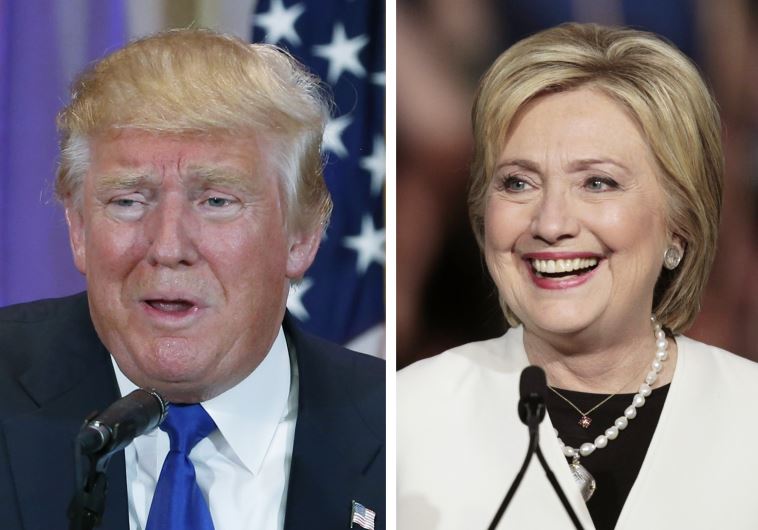Can US rabbis endorse presidential candidates?
Yes, they can, if it’s not on their employer’s time or dime. The more difficult question is whether they should.
 US presidential candidate Donald Trump (L) and Democratic US presidential candidate Hillary Clinton Updated:
US presidential candidate Donald Trump (L) and Democratic US presidential candidate Hillary Clinton Updated: